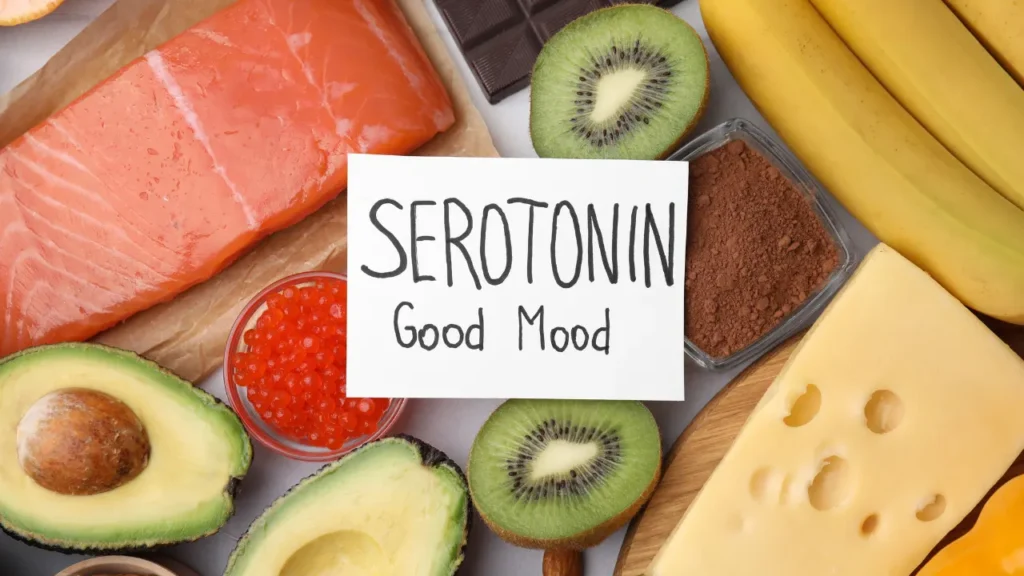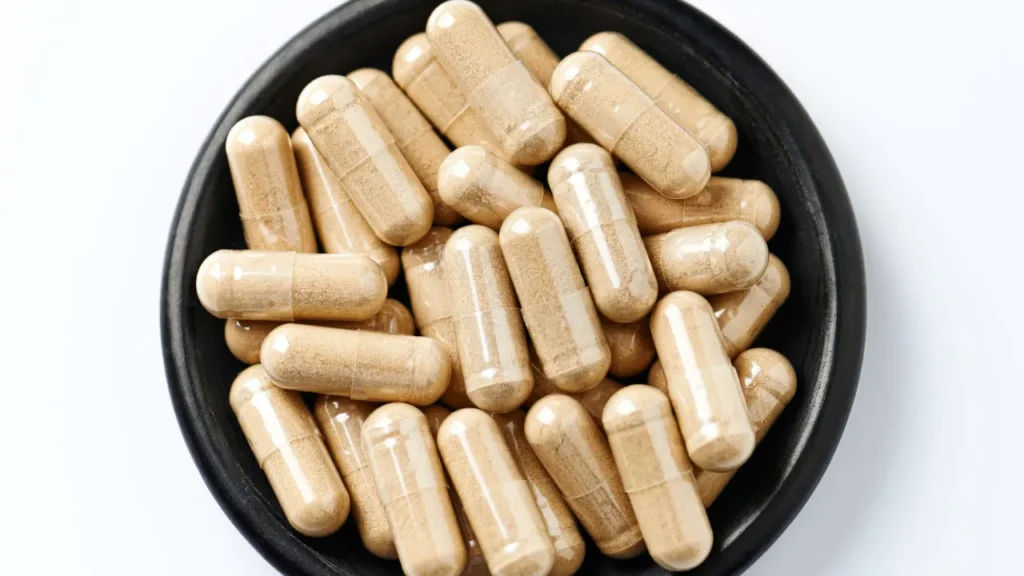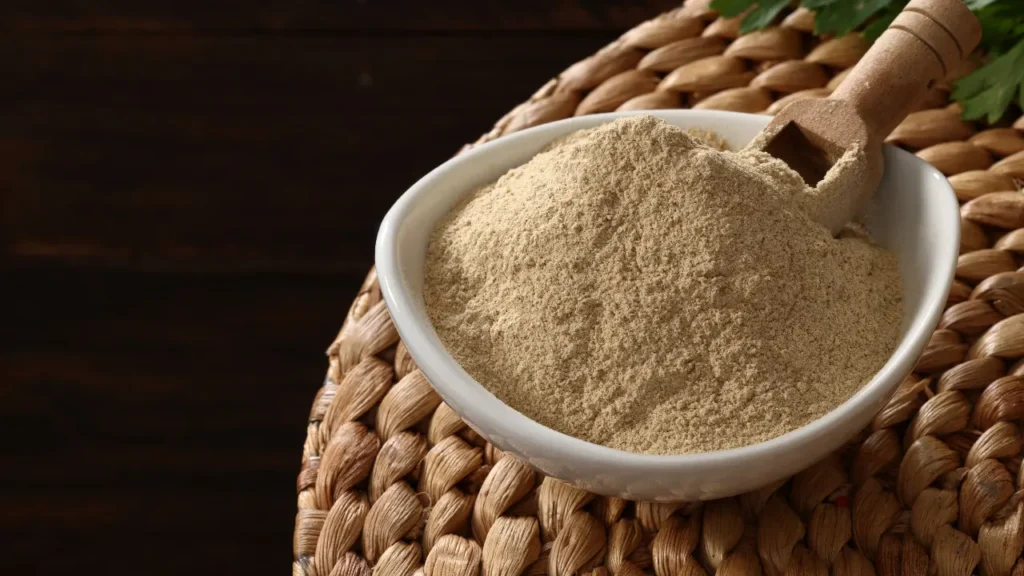The consumption of different dietary supplements has significantly increased over the last few years, with Ashwagandha being one of the most popular choices. Ashwagandha is a potent adaptogenic plant that has a long history of usage in conventional Ayurvedic medicine. Ashwagandha, also known as Withania somnifera or Indian ginseng, has become well-known because of its many health advantages, which range from stress relief to enhanced cognition. This article seeks to offer a thorough explanation of the properties, advantages for health, recommended dosage, negative effects, possible drug interactions, and safe usage of Ashwagandha as a nutritional supplement. It will also explore the chemistry of Ashwagandha and how it affects the body and brain physiologically.
You May Also Like:
Should You Try CBD for Focus? Here Are the Facts.
CBD for Concentration: The Productivity Hack for Energy and Focus
Ashwagandha: Benefits, Dosage, Side Effects, Drug Interactions, And Other Important Information is an original (NootropicsPlanet) article.
Nature of Ashwagandha
Native to the Middle East, North Africa, and India, Ashwagandha is a small perennial shrub. It is a member of the Solanaceae family and is distinguished by its red-orange berries and bell-shaped flowers. The plant’s root, which has the most bioactivity, contains several pharmacologically active substances, including alkaloids, steroidal lactones, saponins, and withanolides.
Health Benefits of Ashwagandha
Ashwagandha is most known for its adaptogenic characteristics, which help the body deal with stress by controlling the release of stress hormones like cortisol. In people with a history of chronic stress, Ashwagandha dramatically decreased stress and anxiety levels, according to a systematic evaluation of five randomized controlled studies (Pratte, Nanavati, Young, & Morley, 2014). This anxiolytic effect is thought to be mediated by the control of the hypothalamic-pituitary-adrenal (HPA) axis and the neurotransmitter systems involving GABA, serotonin, and norepinephrine.
Ashwagandha has been demonstrated to enhance memory and cognitive performance in both animal models and human investigations. Healthy adults who received Ashwagandha for eight weeks showed significantly better attention, information processing, and executive function in a double-blind, placebo-controlled trial (Choudhary, Bhattacharyya, & Joshi, 2017). The antioxidant capabilities of Ashwagandha, control of acetylcholinesterase activity, and stimulation of dendritic development in hippocampus neurons are all responsible for the substance’s neuroprotective benefits.
Due to its capacity to block the production of pro-inflammatory cytokines such as tumor necrosis factor-alpha (TNF-), interleukin-1 (IL-1), and interleukin-6 (IL-6), Ashwagandha has strong anti-inflammatory characteristics. Withanolides, like withaferin A, which can prevent nuclear factor-kappa B (NF-B) activation, are principally responsible for this anti-inflammatory effect. A more effective response to infections and other immune challenges is encouraged by Ashwagandha’s modulation of the immune system by increasing the activity of natural killer (NK) cells.

The Chemistry of Ashwagandha
The main bioactive substances in Ashwagandha are withanolides, which are a class of naturally occurring steroids with a distinctive C28 ergostane structure. Due to its powerful pharmacological effects, withaferin A and withanolide D have undergone a lot of research. Isopelletierine, anaferine, cuseohygrine, and tropine are among the alkaloids, a different family of chemical substances found in Ashwagandha. The numerous health advantages of Ashwagandha are a result of these chemicals as well as other ingredients.
Physiological Mechanisms of Action of Ashwagandha
The diverse mixture of bioactive chemicals in Ashwagandha and their effects on numerous physiological systems can be credited to the variety of health advantages it provides. The main ways that Ashwagandha affects the body and the brain will be covered in this part, with an emphasis on its adaptogenic, neuroprotective, anti-inflammatory, and cardiovascular effects.
The main stress response mechanism in the body, the hypothalamic-pituitary-adrenal (HPA) axis, is modulated by Ashwagandha to exert its adaptogenic effects. Chronic stress causes the HPA axis to become dysregulated, which causes excessive cortisol production and several unfavorable effects on health. By lowering cortisol levels and normalizing stress-related alterations in the HPA axis, Ashwagandha aids in restoring the HPA axis’ equilibrium.
In addition, Ashwagandha has anxiolytic effects by influencing the neurotransmitter systems involving GABA, serotonin, and norepinephrine.

Optimal Dosage of Ashwagandha
The best amount of Ashwagandha to take depends on the person’s age, weight, health, and the formulation of the supplement. Clinical trials have often utilized doses of standardized root extract ranging from 300 to 1,200 mg daily with a withanolide composition of 1.5% to 5%. Before beginning Ashwagandha supplementation, it is crucial to speak with a medical practitioner to establish the best dosage for your specific needs.
Side Effects of Ashwagandha
When consumed in the recommended dosages, Ashwagandha is often regarded as safe for the majority of people. However, some adverse events, such as nausea, sleepiness, and minor allergic reactions, could happen. It is essential to be aware of these potential side effects and stop using the medication if any negative effects are noticed.
Potential Substance Interactions with Ashwagandha
Many drugs and chemicals may interact negatively or less effectively when used with Ashwagandha. Among the possible interactions are:
- Sedatives and Anxiolytics: Due to its anxiolytic effects, Ashwagandha may enhance the effects of sedative drugs like benzodiazepines, raising the risk of oversedation and drowsiness.
- Antihypertensive Drugs: Ashwagandha may intensify the effects of antihypertensive drugs, causing a greater reduction in blood pressure than is planned.
- Immunosuppressive drugs: Ashwagandha’s immune-modulating effects may prevent immunosuppressive drugs from working as well.
- Thyroid hormone medications: Ashwagandha has been proven to raise thyroid hormone levels in animal experiments, which may reduce the effectiveness of thyroid hormone replacement treatment.

Best Responsible Use of Ashwagandha
The best responsible use of Ashwagandha as a dietary supplement requires adherence to some rules and safety precautions. These consist of:
- Speak with a healthcare expert: It is essential to speak with a healthcare provider before beginning Ashwagandha supplementation to establish the best dosage according to each person’s needs, medical history, and any potential drug interactions. As a result, the effectiveness and safety of Ashwagandha supplementation may be enhanced.
- Select a high-quality product: Opt for an Ashwagandha supplement that is trustworthy, high-quality, and has been standardized to contain a precise amount of withanolides which are the main bioactive components in Ashwagandha. By doing this, the supplement’s effectiveness and consistency are guaranteed, increasing the likelihood of having the desired health effects.
- Adhere to the recommended dosage: It’s crucial to adhere to the dosage recommendations made by the manufacturer or a medical expert. The risk of side effects or negative reactions may rise if you take more than the recommended dosage.
- Keep an eye out for interactions and adverse effects: Be mindful of any negative effects when using supplements or other medications. Stop using immediately and seek further advice from a healthcare expert if any negative reactions happen.
Ashwagandha:
Conclusion
Ashwagandha, an adaptogenic herb deeply rooted in Ayurvedic traditions, can be used as a nutritional supplement due to its various biocomponents. Ashwagandha is known to promote stress-relieving properties and enhance personal wellness. It can also help prevent cancer due to its anti-cancer properties. It also has been traditionally used to promote vitality, manage stress, and enhance overall well-being. The adaptogenic nature of this herb suggests its capacity to help the body adapt to stressors, supporting a balanced and resilient physiological response.
While Ashwagandha has gained popularity as a natural supplement, if you are considering its incorporation into your wellness routine, you should be mindful of individual health conditions and seek guidance from healthcare professionals. This is because the dosage that is needed by individuals may differ. Exploring the potential advantages of Ashwagandha within the context of holistic health may contribute to a more comprehensive and personalized approach to overall well-being.

References:
- An Investigation into The Stress-Relieving and Pharmacological Actions of An Ashwagandha (Withania Somnifera) Extract: A Randomized, Double-Blind, Placebo-Controlled Study. Retrieved from:https://pubmed.ncbi.nlm.nih.gov/31517876/
- Efficacy And Safety of Ashwagandha Root Extract on Cognitive Functions in Healthy, Stressed Adults: A Randomized, Double-Blind, Placebo-Controlled Study. Retrieved from: https://pubmed.ncbi.nlm.nih.gov/34858513/
- Does Ashwagandha Supplementation Have a Beneficial Effect on The Management of Anxiety and Stress? A Systematic Review and Meta-Analysis of Randomized Controlled Trials. Retrieved from: https://pubmed.ncbi.nlm.nih.gov/36017529/
- An Alternative Treatment for Anxiety: A Systematic Review of Human Trial Results Reported for The Ayurvedic Herb Ashwagandha (Withania somnifera). Retrieved from: https://pubmed.ncbi.nlm.nih.gov/25405876/
- Body Weight Management in Adults Under Chronic Stress Through Treatment with Ashwagandha Root Extract: A Double-Blind, Randomized, Placebo-Controlled Trial. Retrieved from: https://pubmed.ncbi.nlm.nih.gov/27055824/
Important Note: The information contained in this article is for general informational purposes only, and should not be construed as health or medical advice, nor is it intended to diagnose, prevent, treat, or cure any disease or health condition. Before embarking on any diet, fitness regimen, or program of nutritional supplementation, it is advisable to consult your healthcare professional in order to determine its safety and probable efficacy in terms of your individual state of health.
Regarding Nutritional Supplements Or Other Non-Prescription Health Products: If any nutritional supplements or other non-prescription health products are mentioned in the foregoing article, any claims or statements made about them have not been evaluated by the U.S. Food and Drug Administration, and such nutritional supplements or other health products are not intended to diagnose, treat, cure, or prevent any disease.


